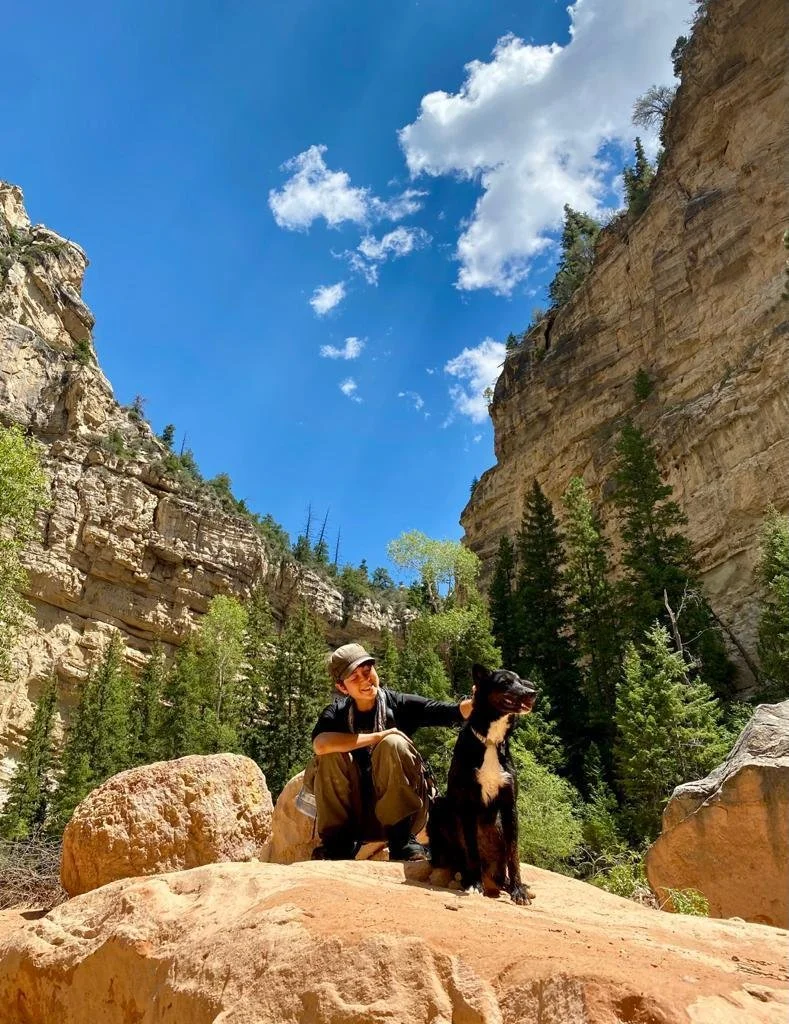Bodyful Episode #15: Zephyr Scott on Food System Alienation
By Valerie Martin
Every now and then someone comes along who stops you in your tracks and makes you just want to pull out your notebook and write down everything they’re saying.
Zephyr Scott is one of those people.
They are incredibly passionate, wise, unconventional, kind, and dedicated to their work of bridging disconnections that have been ignored to the detriment of our individual and collective health.
This dynamic conversation reaches across a wide range of topics, from why eating disorder treatment facilities should consider biophilic design, to what Zephyr defines as “food system alienation,” and how a year of living as a vagabond taught them more about breaking free from the cultural script than anything they could have learned inside a therapy room.
I can’t wait to read Zephyr’s future book, and it’s clear to me just from this hour-long conversation that they are going to leave a real mark on the world.
To listen to the episode, stream from the podcast player below, or search & subscribe to Bodyful on Spotify, Apple Podcasts, or wherever you listen to podcasts.
About Zephyr Scott (they/them)
Zephyr has been many things: a freelance painter, international solo hitchhiker, burlesque performer, dissident, student, emergency caseworker for survivors of domestic violence, citizenship test interpreter, vagrant, teacher, and more. They have lived in moldy squats, on sidewalks, at occupations, out of a backpack in the woods, and as far from their Chesapeake Bay region birthplace as Aotearoa (New Zealand). Zephyr now lives in a log cabin with friends of varied species in the high desert wilderness on occupied Apache Chiricahua land. It is a place that they aspire to transform into a multispecies sanctuary of sorts for individuals whose bodies have been harmed by human food systems.
Zephyr is finishing their Masters of Science in Sustainable Food Systems, writing a book that examines food and body struggles from a critical food systems studies perspective, and is spending the first half of 2022 doing an intensive mentored study in regenerative architecture with a focus on the psychological and embodied impacts of existing eating disorder treatment center designs. Their upcoming projects will reimagine and radically redesign care for people who are struggling with food and embodiment. Much of Zephyr’s research and writing has centered on the weaponization of food systems by systems of power, the framework they have been creating of “food system alienation”, and the utilization and reclamation of food systems in liberatory struggles.
Zephyr believes in taking action to facilitate autonomy for everyone regardless of class, race, gender, species, and all other assigned categories.
Links + Additional Resources:
Previous podcast episode with Jenn Friedman on veganism & eating disorders
Food, Inc. documentary (as of this writing, stream on Amazon Prime or rent at many places online)
Dominion documentary (stream free on YouTube) - TRIGGER WARNING, very intense content

